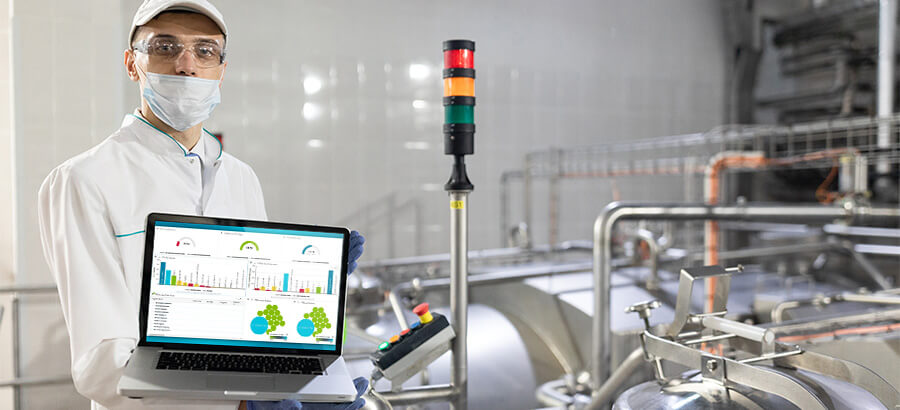The food and beverage industry faces a complex assortment of challenges today. Manufacturers must ensure adherence to regulatory compliance, strike a balance between efficiency and profitability, maintain unblemished food safety records, and guarantee customer satisfaction. These efforts are carried out in conjunction with the demands of managing a sprawling global supply chain.
In this scenario, it’s not just manufacturers who feel the heat. Distributors, retailers, and food service companies also shoulder the responsibility of continually reporting every ingredient that goes into their manufacturing process. Understanding the supply chain from “farm to table” is essential to not just meet regulatory compliance but also to allow consumers to have confidence in the ethical sourcing of natural resources in the food industry. Traceability has moved from being a nice-to-have to an essential business practice, underlining the universal need for real-time, accurate, and dependable data throughout the supply chain.
Too many silos in the kitchen
Regrettably, many global food and beverage manufacturers face a significant hurdle in their quest for data-driven decision making. Their valuable data is often locked away in separate, siloed, and outdated systems and formats, making data access and analysis an uphill task. This is where the integration of embedded analytics within ERP systems can make a world of difference.
Embedded analytics function as the much-needed bridge between isolated data silos. They empower stakeholders with centralized access to insights and analytics right where work is being done, fostering collaboration and a data-driven culture. This systematic approach eliminates the need for decision-makers to juggle between different systems or aggregate data manually—saving significant time and reducing potential for errors.
Integrating analytics within ERP systems enables food and beverage manufacturers to swiftly consolidate millions of data points into clear, structured insights. These insights, easily accessible and ready for consumption, serve as the key component for critical business decisions.
Centralized analytics and ERP: A recipe for success
The adoption of embedded analytics brings a myriad of benefits to the food and beverage industry. They are a powerful tool for maintaining compliance with stringent food safety regulations such as the Food Safety Modernization Act and Safe Quality Food Standards. Most importantly, they also afford confidence in the sustainability of natural resources.
Manufacturers can trace every single ingredient used in the manufacturing process, providing a detailed journey from source to customer. This ensures complete bi-directional traceability, providing robust audit trails of all transactions, the ability to carry out successful recalls, and authenticating operators for specific transactions.
Centralized analytics within an ERP system also play a crucial role in managing product and raw material risk across the supply chain. A single bad batch, in or out, can have far-reaching consequences for a brand’s reputation. Embedded analytics support a swift and accurate traceability system and provide an essential backup in the event of a lapse in internal food safety standards. (Targets are now less than one hour!)
Moreover, embedded analytics contribute to the accurate recording of recipes or formulas, making it easy to replace ingredients and track waste. They also enhance the quality control of incoming raw materials and ensure stricter allergen controls, a critical factor in preventing cross-contamination.
Embedded analytics are instrumental in helping manage complex global supply chains. They aid in identifying trends, fine-tuning the delicate balance between supply and demand, ensuring tight cost controls, and navigating the challenges of supply chain management and synchronization in a dynamic and intricate global environment.
An invaluable ingredient for certainty
If your goal is to give your food and beverage business a competitive advantage while ensuring compliance, it’s high time to explore the transformative potential of embedding analytics into your ERP system. By leveraging the power of data, you can enhance operations, maintain compliance, and gain a defensible edge in a fast-evolving industry landscape. The integration of analytics into ERP systems could be the secret sauce your business needs to stay ahead of the curve.







